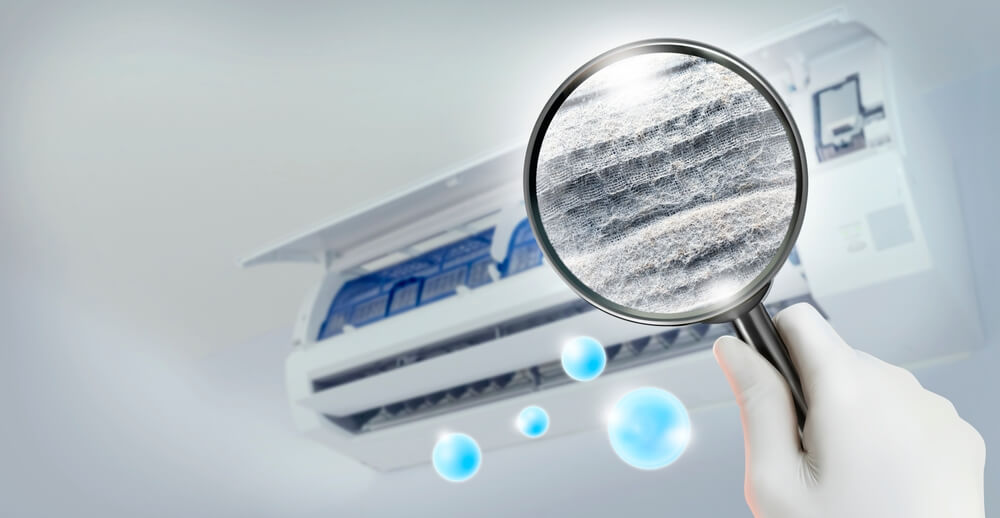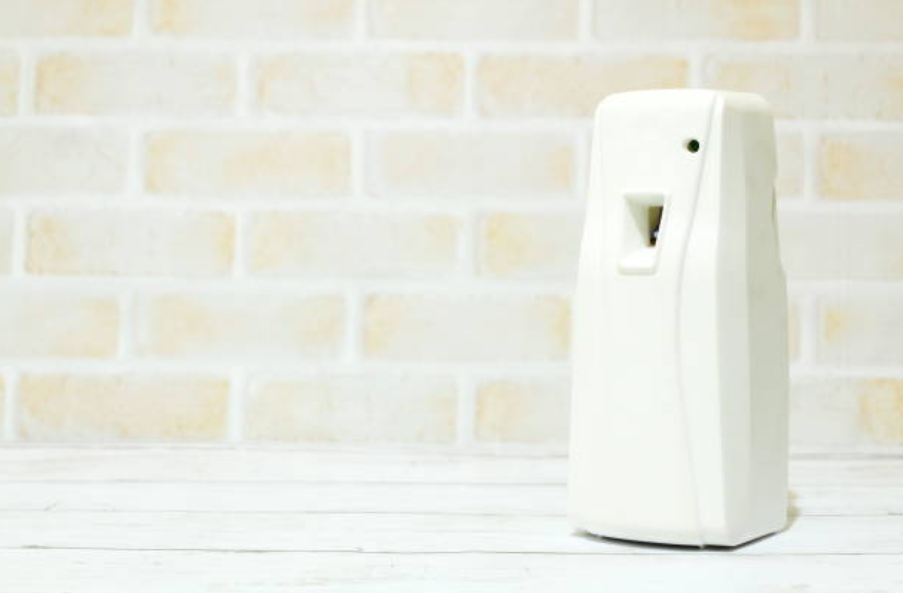Blog
Why Spring Is The Perfect Time To Change Your HVAC Filters

Regular HVAC maintenance is an important aspect of homeownership. Properly maintaining and caring for your air conditioning and heating systems could save you thousands of dollars in the long run.
After a long winter of working overtime to produce enough heat for your family, you will need to change your furnace’s filter for the summer. It is important to ensure your filters are up to date and prepared for the hard work your HVAC system will endure during the upcoming summer months.
When Should You Change an HVAC Filter?
Even though it is one of the simplest and easiest ways to ensure your heating system is running smoothly, many people fail to clean or replace their air filters over the course of the year. It is important to understand why air filters are necessary for the health of your heating and cooling system.
Air filters are important in keeping your family safe, as well as maintaining proper indoor air quality. In fact, they protect against mold, pollen, fur, bacteria, dust, lint, metal, plaster, and wood particles. The air filtration occurs when the disbursed air is sucked back into the HVAC system, where it is then conditioned and used again.
When your heating system or furnace has dirty or clogged air filters, it can drive up energy bills and cause problems to your system. In order to prevent this, be sure to check your air filters at least once a month, especially during the fall and winter when your heating system is working harder.
5 Types of Air Filters
It is important to understand the different types of air filters to ensure you are using the right equipment. Most HVAC and furnace filters are disposable, made of biodegradable paper or similar media, and shaped in cells, screens, or fins designed to trap as much airborne debris as possible.
Contrary to popular belief, the size and thickness of your air filter have nothing to do with its efficiency. What you need to look at is the Minimum Efficiency Reporting Value
(MERV) rating.
MERV ratings range from one to 16. The higher the MERV rating on a filter, the fewer dust particles and other contaminants can pass through it. Filters are tested for pollen, dust mites, textile and carpet fibers, mold spores, dust, pet dander, bacteria, and tobacco smoke. Most residential systems can adequately remove airborne contaminants with a MERV rating of seven to 12. Filters with a MERV of 13 to 16 are typically found in hospitals and general surgery settings.
The higher the MERV rating, the smaller the pores are for the air to flow through an HVAC filter. This can create more resistance in airflow than a system is designed to manage, thus making it inefficient. Reducing the airflow in your system can actually worsen the air quality in your home and put a damaging amount of pressure on the fan of your furnace or AC system.
Because of this, it’s important to find the highest MERV-rated filter that still allows for maximum airflow in your system, or hire an expert to assist you.
Filters can typically be purchased in economical multi-packs; many types will fit different unit types. It’s important to use the appropriate filter for your unit because using the wrong filter that doesn’t fit properly can create the same types of problems as a dirty filter.
Besides MERV rating, there are other things that differentiate types of air filters. These include the following.
1. Fiberglass Filters
Fiberglass filters are the most common and affordable filter option. These filters are disposable and capture larger debris like lint and dust. They're effective for maintaining airflow in various systems. However, they're not ideal for allergy-prone homes. Remember to replace fiberglass filters monthly. They're constructed by layering fiberglass and are supported by metal grating for rigidity.
2. Disposable Pleated Filters
Pleated filters are more expensive than fiberglass ones, but they are made from higher-quality materials, including polyester. They are molded in a pleated shape to effectively absorb a significant amount of dust, dirt, and allergens, as well as smaller-sized particulates like pollen, pet dander, and bacteria.
Pleated filters need to be changed about every 90 days. They will hold onto any filtered material when you’re replacing them.
3. Disposable Electrostatic
These filters have electrostatic cotton or paper fibers that attract and contain small particles, making it the best option for homes with children, pets, or smokers. While they are affordable in standard sizes, custom sizes can be more expensive.
4. Permanent Electrostatic
Using the same technology as its disposable counterpart, this option has a machine-washable filter that can be reused for up to eight years. However, like disposable electrostatic filters, permanent ones can be affordable in standard sizes but more pricey if a custom size is needed.
5. High-Efficiency Pleated
These consist of 4 to 5 inches of pleated synthetic cotton and are attached to a metal grid to prevent leaks. The pleats do not necessarily mean a higher MERV rating. Rather, it creates more surface area to trap particles.
These filters are used in hospitals, as they trap the smallest of particles and are useful to those with respiratory issues or autoimmune disorders. Of course, this filter costs more and can only be installed in homes with air filter equipment that can handle the size of the filter.
How Often Should HVAC Filters Be Changed?
Depending on the size and type of your heating and air conditioning system, as well as the type of filters you use, how often you need to change your air filters may vary. It is recommended that you undergo routine HVAC maintenance by a trusted and experienced professional technician to ensure your filters are changed regularly and to address any other unforeseen problems your HVAC system may have.
The short answer for when to change your air filters is when they are dirty. There are many factors that you need to consider, including:
- Where you live
- The number of pets you have
- If you are a smoker
- If you or a loved one suffers from allergies
- The type of air filter you have
Spring is a perfect time to have a maintenance and safety inspection performed on your heating and cooling system. After running to keep you warm all winter long, your air filters have likely built up dust and debris. Before your HVAC system begins working overtime to keep you cool during the summer, be sure to have a professional maintenance and safety inspection performed.
When you need advice on choosing the right air filter for your home, contact Home Comfort Experts to schedule an appointment with our HVAC technicians.






